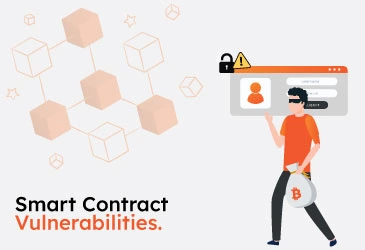How Can Features Of Blockchain Support Sustainability Efforts?
Updated : June 15, 2023

Blockchain technology, originally created as the foundation for cryptocurrencies like Bitcoin, has evolved into a powerful tool with far-reaching applications. Its decentralized nature, immutability, and transparency make it an ideal candidate for supporting sustainability efforts. As the world grapples with environmental challenges, such as climate change and resource depletion, harnessing the features of blockchain can play a vital role in driving positive change. From supply chain traceability to renewable energy trading, blockchain has the potential to revolutionize sustainable practices and create a more environmentally conscious future. This blog post explores how features of blockchain support sustainability efforts?
Join us on this journey as we uncover the transformative power of blockchain in creating a greener, more sustainable future
Let’s have a look at the ways of supporting sustainability efforts:
Ways In Which Blockchain Technology Supports Sustainability Efforts
-
Enhancing Supply Chain Transparency and Accountability
Blockchain technology implements sustainable development goals by maintaining supply chains. Unfortunately, issues such as human rights violations, and environmental degradation pose significant challenges. Blockchain technology can revolutionize supply chain management by providing an immutable, decentralized ledger that records every transaction and movement of goods.
With blockchain, stakeholders across the supply chain can verify the authenticity, origin, and ethical production practices of products. By ensuring transparency and accountability, blockchain helps consumers make informed choices and supports sustainable businesses. This approach fosters fair trade, reduces waste, and encourages responsible sourcing, ultimately contributing to poverty eradication
-
Empowering Decentralized Finance and Inclusive Growthh
Access to financial services remains a major obstacle for many individuals in impoverished communities. Traditional banking systems often exclude marginalized populations due to high transaction fees, lack of identification, or geographical limitations. Blockchain-based decentralized finance (DeFi) solutions can bridge this gap and enable financial inclusion on a global scale.
By leveraging smart contracts and digital assets, blockchain allows for secure and efficient peer-to-peer transactions without the need for intermediaries. This empowers individuals to access loans, savings, and investment opportunities, driving economic growth and reducing poverty. Moreover, blockchain-based identity solutions can enable individuals without official documentation to establish digital identities, opening doors to financial services and other essential resources. To support sustainability in the entire business model, we offer blockchain development services.
-
Ensuring Transparent Philanthropy and Aid Distribution
Efficient and transparent distribution of philanthropic aid is essential for poverty alleviation and sustainable development. Unfortunately, traditional systems often suffer from a lack of transparency, high administrative costs, and corruption risks. Blockchain presents a solution by providing a decentralized, tamper-proof platform for tracking and managing charitable contributions.
By recording donations and aid distribution on the blockchain, stakeholders can ensure that funds reach their intended beneficiaries with minimal leakage or corruption. Additionally, donors gain increased confidence in the impact of their contributions, encouraging greater philanthropic involvement. The transparency and efficiency of blockchain technology enhance the effectiveness of aid programs, accelerating progress toward poverty eradication.
-
Facilitating Renewable Energy Trading and Climate Action
Transitioning to renewable energy sources is essential for combating climate change and achieving sustainability goals. Blockchain technology can play a significant role in facilitating the efficient trading and management of renewable energy resources
Exploring the integration of sustainability practices across multi-tier supply networks, this study delves into the implications and potential complexities associated with leveraging blockchain technology for driving positive change.
By using blockchain-based platforms, individuals and organizations can participate in peer-to-peer energy trading, eliminating the need for centralized intermediaries. This enables renewable energy producers to sell excess energy directly to consumers, promoting a decentralized energy grid and reducing dependence on fossil fuels. Moreover, blockchain-based systems can ensure transparency in tracking carbon credits and incentivize sustainable practices by rewarding participants for reducing their carbon footprint.
-
Smart Contracts and Sustainable Business Practices
Another powerful feature of blockchain technology is the use of smart contracts. Smart contracts are self-executing agreements that automatically enforce the terms and conditions written into the code. These contracts can facilitate sustainable business practices by ensuring compliance with environmental regulations, ethical sourcing, and fair trade principles.
For instance, in the renewable energy sector, smart contracts can automate and verify transactions related to the production and distribution of clean energy. They can facilitate peer-to-peer energy trading and help organizations when sharing data, or to directly buy and sell renewable energy credits. This streamlined process encourages the adoption of green energy sources and supports the transition to a sustainable energy future.
-
Blockchain and Carbon Credits
Addressing climate change requires concerted efforts to reduce carbon emissions. Blockchain technology offers a promising solution for effectively managing and trading carbon credits. Carbon credits represent a unit of carbon dioxide emissions reduction or removal, earned by organizations that take actions to mitigate their environmental impact.
By leveraging blockchain's transparency and security, carbon credits can be reliably tracked, verified, and traded in a decentralized manner. This eliminates the need for intermediaries, reduces transaction costs, and ensures the integrity of the carbon credit market. Blockchain-powered platforms can provide a transparent marketplace where buyers and sellers can easily trade carbon credits, incentivizing sustainable practices and facilitating the transition to a low-carbon economy.
-
Implementing Blockchain in Waste Management
Efficient waste management is critical for achieving sustainability goals. Blockchain technology can revolutionize waste management practices by enabling accurate tracking, tracing, and monitoring of waste streams.
With blockchain, each stage of waste generation, collection, transportation, and disposal can be recorded in a secure and immutable manner. This not only enhances transparency but also promotes accountability and responsibility. Waste producers can be incentivized to adopt sustainable waste management practices by leveraging blockchain-based systems that reward proper disposal, recycling, and waste reduction efforts.
Blockchain technology and all other modern alternatives to blockchain are famous for supporting sustainability efforts in every possible way.
Conclusion
Blockchain technology presents immense opportunities to support sustainability efforts across various industries. Its features of enhanced supply chain transparency, empowering decentralized growth, transparent philanthropy, smart contracts, carbon credit management, and waste management solutions can contribute to a more sustainable and environmentally responsible future. If you want to secure your business, get our smart contract audit services and secure your project
Take control of your smart contract security - Request a professional Smart Contract Audit today and ensure the solidity of your blockchain projects
Insights

What Is A Smart Contract Audit?
Smart contracts are self-executing agreements that run on a blockchain network, allowing for secure and decentralized transactions. Smart contracts ...

Smart Contract Vulnerabilities
Smart contracts have revolutionized how we conduct transactions and execute agreements in the digital age. These self-executing programs ...

Smart Contract Audit Checklist
Smart contracts are self-executing agreements with the terms of the agreement between buyer and seller being directly written into lines of code ...